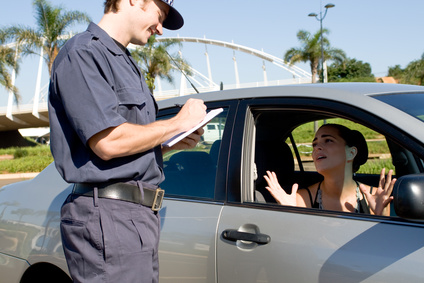Is It Illegal To Not Have Car Insurance? – The Consequences You Must Know If Get Caught Uninsured!

Free Car Insurance Comparison
Compare Quotes From Top Companies and Save
Secured with SHA-256 Encryption
Natasha McLachlan
Content Writer
Natasha McLachlan is a writer who currently lives in Southern California. She is an alumna of California College of the Arts, where she obtained her B.A. in Writing and Literature. Her current work revolves around auto insurance guides and informational articles. She truly enjoys helping others learn more about everyday, practical matters through her work.
Content Writer
UPDATED: Feb 8, 2022
It’s all about you. We want to help you make the right coverage choices.
Advertiser Disclosure: We strive to help you make confident car insurance decisions. Comparison shopping should be easy. We are not affiliated with any one car insurance provider and cannot guarantee quotes from any single provider. Our partnerships don’t influence our content. Our opinions are our own. To compare quotes from many different companies please enter your ZIP code on this page to use the free quote tool. The more quotes you compare, the more chances to save.
Editorial Guidelines: We are a free online resource for anyone interested in learning more about car insurance. Our goal is to be an objective, third-party resource for everything car insurance-related. We update our site regularly, and all content is reviewed by car insurance experts.
UPDATED: Feb 8, 2022
It’s all about you. We want to help you make the right coverage choices.
Advertiser Disclosure: We strive to help you make confident car insurance decisions. Comparison shopping should be easy. We are not affiliated with any one car insurance provider and cannot guarantee quotes from any single provider. Our partnerships don’t influence our content. Our opinions are our own. To compare quotes from many different companies please enter your ZIP code on this page to use the free quote tool. The more quotes you compare, the more chances to save.
On This Page
Vehicle insurance laws in the United States are designed to cover the risk that a driver faces, financially, in terms of liability if their vehicle is involved in an accident or a collision. But is this illegal to drive a car without adequate auto insurance? Let’s learn.
The law varies from state to state, but most states will require that vehicle owners have at least a basic level of liability insurance. There are some exceptions to this – In Virginia, for example, there is an option to pay an uninsured motor vehicle fee to the state.
In New Hampshire and Mississippi, there is the option to pay a cash bond instead of having insurance. Most states, however, use an insurance model similar to that in other parts of the world.
Insurance Protects You and Other Road Users
The purpose of insurance is twofold. Firstly, insurance is there to pay out if you are involved in an accident. Unless you are incredibly wealthy, you are unlikely to be able to afford to cover the medical expenses, loss of earnings, and property damage from a severe car accident.
Think,
Why risk losing your home or being forced to sell assets to pay for an accident, when insurance exists? Insurance is also there to protect the other party in the accident. Someone needs to cover those bills. If someone becomes unable to work or needs expensive medical care following a traffic accident, then their bills need to be paid somehow, and in the eyes of most states, insurance is there to cover that possibility.
Compare quotes from the top car insurance companies and save!
Secured with SHA-256 Encryption
Will I Be Punished For Driving Without Insurance?

- Getting your driving license suspended: In Florida, drivers have five days to provide proof of insurance otherwise their license and registration will be suspended. There is a $150 reinstatement fee.
- Having your vehicle’s registration suspended: In New York, a driver can have their license and registration revoked for up to three years if they fail to provide proof of insurance.
- A traffic violation ticket for failing to have insurance (in addition to the ticket you are given for whatever reason you were originally pulled over).
- A fine: Fines can range from as little as $150 for a first, minor offense in New York, to $1750 for driving offenses in Texas.
- Increased future premiums
- Vehicle impounded: In California and New York, for example, officers have the choice to impound vehicles if a driver is caught on the roads without insurance.
Compulsory insurance has been around since 1925. Massachusetts and Connecticut led the way, but since then almost every state has adopted some form of compulsory insurance.
The push for compulsory insurance was successful for a long time, with the percentage of uninsured motorists in the United States falling to 12.3 percent in 2010. Since then it has started to increase again, hitting 13 percent in 2017.
Personal Responsibility
In California and New Jersey, there are ‘Personal Responsibility Acts’. These acts require drivers to carry liability insurance and mean that uninsured drivers cannot recover ‘non-economic damages’ if they suffer an injury while they are in control of a motor vehicle.
Each state has their own stance on the issue of insurance. While California and New Jersey have gone the route of trying to make it as appealing as possible, financially, for drivers to take out insurance some other states take a more forceful approach.
In North Carolina, drivers have to have liability insurance before they can get a license at all. There is a ‘fleet license’ which can be issued even if the license holder does not have insurance, but fleet licenses are only available for vehicles that are owned and insured by a person’s employer. Someone who holds a fleet license cannot drive a personal vehicle on it.
Cancelling Auto Insurance
It is not a good idea to just let your auto insurance lapse if you sell your car or otherwise stop driving. To avoid fines and other penalties, you need to cancel your auto insurance and then inform the DMV that you have done so.
In some states,
Insurance companies are required by law to tell the DMV if a former policyholder is no longer covered by them. If they do this and you have not informed the DMV yourself then the DMV may punish you as if you were a driver that was uninsured, with a registered vehicle. The DMV needs to know that you are no longer driving. If you do plan to continue driving then you must take out a new policy immediately upon cancelation of an old one.
Compare quotes from the top car insurance companies and save!
Secured with SHA-256 Encryption
Could The Future of Insurance Look Very Different?
There are so many motorists on the road that it can be difficult for law enforcement, the DMV, and insurance companies to keep track. One suggestion, from John Semmens of the Department of Transportation Research in Arizona, has suggested that car insurers issue license plates, and that those plates would expire at the end of the cover period. The idea is that drivers would return their plates to the insurance company to get a refund on their premium and be issued with new ones.
So,
Vehicles that were uninsured would be easy to identify because they would either be lacking license plates or have a plate that had expired. Whether this idea will be adopted remains to be seen, but it has had positive feedback.
Driving Uninsured Is Not Worth The Risk
Uninsured drivers are often people who cannot afford insurance, but who need to drive to get to work. They are usually responsible motorists who are forced to make bad decisions through less than ideal circumstances.
Look,
Stiff penalties are not going to be an effective deterrent but making insurance more affordable could be an answer. If you are in a position where you are uninsured but need to drive, look into the minimum required coverage in your state and shop around for a bare-bones policy, because if you think you cannot afford insurance, then you definitely cannot afford the penalties for driving uninsured.
The fines can be painful:

The costs will also depend on the circumstances in which the authorities find out that your vehicle has no insurance. For example, if you are pulled over for a speeding ticket or texting while driving, and it is discovered that you have no insurance, the fees may be significantly lower than if you were in an accident. However, you will not be allowed to drive your vehicle until you obtain insurance.
Exception
The only exception that may apply to avoiding fees or penalties for not showing proof of your insurance when requested by the authorities is if you are insured, but have no paperwork that is current which demonstrates that you are fully covered. This is common as many people forget to put in the new proof of their insurance policy after purchase.
If you can demonstrate to the court that you were covered, the charges and fees may be dropped for not having proof of insurance in your vehicle. Otherwise, there is no exception for lacking insurance coverage which means that you will face stiff penalties and fees that are best avoided by purchasing insurance beforehand.
To answer the question of is it legal to drive without insurance – unless you live in the states of New Hampshire or Virginia, you will need to have proper insurance coverage for you and your vehicle.
Compare quotes from the top car insurance companies and save!
Secured with SHA-256 Encryption
Natasha McLachlan
Content Writer
Natasha McLachlan is a writer who currently lives in Southern California. She is an alumna of California College of the Arts, where she obtained her B.A. in Writing and Literature. Her current work revolves around auto insurance guides and informational articles. She truly enjoys helping others learn more about everyday, practical matters through her work.
Content Writer
Editorial Guidelines: We are a free online resource for anyone interested in learning more about car insurance. Our goal is to be an objective, third-party resource for everything car insurance-related. We update our site regularly, and all content is reviewed by car insurance experts.